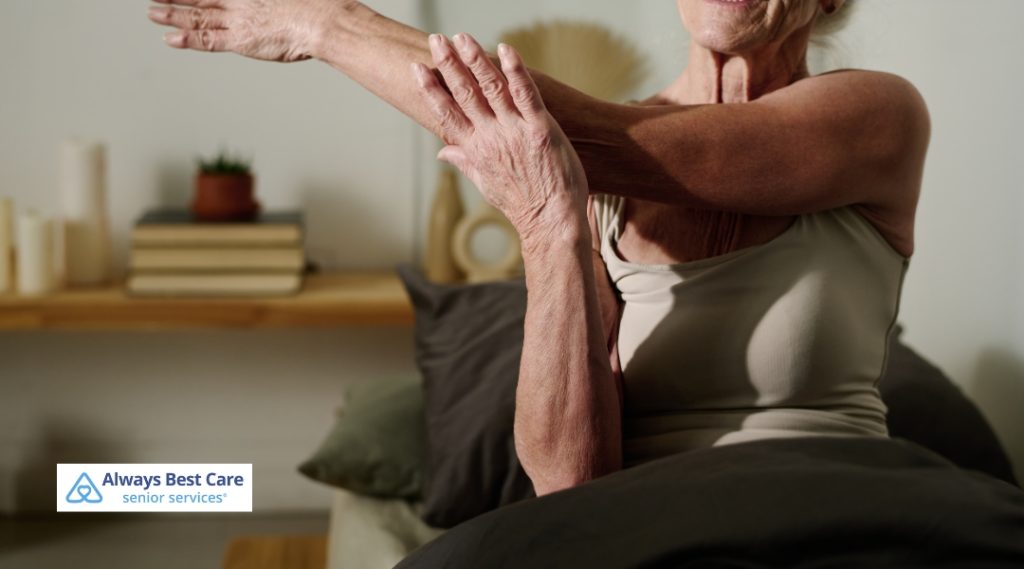6 Restorative Sleep Tips: How Seniors Can Have a Good Night, Every Night

A restful night’s sleep does more than just help you feel refreshed—it’s essential for maintaining physical health, mental clarity, and emotional balance, especially as we age.
Yet, many seniors find themselves tossing and turning, struggling with sleep patterns that used to come easily.
We’ll explore six practical and restorative sleep tips specifically designed to help older adults drift off more easily, sleep soundly, and wake up ready to enjoy each new day.
Table of Contents
Understanding Why Sleep Changes with Age
As we get older, it’s common for sleep to become lighter, shorter, and more fragmented. One key factor is the body’s reduced production of melatonin, the hormone that helps regulate sleep-wake cycles. With less melatonin, falling asleep and staying asleep become more difficult.
Age also affects the structure of sleep. Seniors tend to spend more time in lighter stages of sleep and less time in the deep, restorative stages that help the body heal and recharge. Changes in circadian rhythm—our internal body clock—can make older adults feel sleepy earlier in the evening and wake up earlier in the morning.
Medical conditions like arthritis, heart disease, and frequent nighttime urination can further interrupt rest. Emotional stress, grief, or loneliness can also make it harder to wind down at night.

Tip 1: Stick to a Consistent Sleep Schedule
One of the simplest yet most effective ways to improve sleep is to go to bed and wake up at the same time every day, even on weekends. A regular schedule helps regulate your internal clock, making it easier to fall asleep and wake up naturally.
For seniors, whose circadian rhythms may already be shifting, this consistency can anchor the body’s natural rhythm and reduce nighttime restlessness. Avoid long daytime naps, especially in the late afternoon, as they can make it harder to feel tired at bedtime.
Gentle routines, like reading or listening to calm music before bed, can signal to the brain that it’s time to wind down.
Tip 2: Create a Sleep-Friendly Environment
Your bedroom should be a haven for rest and sleep. Start by ensuring the room is cool, quiet, and dark—conditions that promote deeper sleep. Blackout curtains, white noise machines, and a comfortable mattress can make a big difference.
For seniors who wake often during the night, clear pathways and soft nightlights can add safety without disrupting sleep. Remove electronics or anything that emits blue light, which can suppress melatonin and trick your brain into thinking it’s still daytime. A tidy, clutter-free space can also ease anxiety and encourage a more peaceful night.

Tip 3: Watch What You Eat and Drink Before Bed
What you consume in the evening can significantly impact how well you sleep. Eating heavy meals, spicy foods, or consuming excessive sugar close to bedtime can lead to indigestion or discomfort, making it difficult to fall asleep.
Caffeine and alcohol are also common culprits—caffeine is a stimulant that can stay in your system for hours, and while alcohol may make you drowsy at first, it often disrupts sleep later in the night.
Try to finish eating at least two to three hours before bed, and opt for a light, healthy snack if needed, like a small serving of yogurt, bananas, or warm milk. Staying hydrated is essential, but limit liquids late in the evening to avoid frequent trips to the bathroom.
Tip 4: Move More During the Day
Regular physical activity can have a positive impact on sleep, especially in older adults. Movement helps regulate the body’s natural sleep-wake cycle, reduces daytime fatigue, and promotes deeper rest at night.
You don’t need intense workouts—even gentle activities like walking, stretching, gardening, or light yoga can be effective. Aim to stay active during daylight hours, as exercising too close to bedtime might keep you awake.
The key is consistency. Building daily movement into your routine supports both your physical health and helps you fall asleep more easily.

Tip 5: Manage Stress Before Bedtime
Worries and racing thoughts are common culprits behind sleepless nights. That’s why creating a calming wind-down routine is so important. Relaxation techniques such as deep breathing, meditation, gentle stretching, or listening to soft music can quiet the mind and ease the transition to sleep.
For some, writing in a journal or practicing gratitude before bed helps release lingering stress. The goal is to reduce mental clutter and create a peaceful space, both in your environment and in your thoughts, so that you can drift off with ease.
Tip 6: Review Your Medications with Your Doctor
Many seniors take multiple medications, and some of them—especially those for blood pressure, asthma, or depression—can interfere with sleep. Side effects may include restlessness, vivid dreams, or frequent awakenings.
Even over-the-counter remedies like decongestants or sleep aids can affect sleep quality in unexpected ways. If you’re experiencing trouble sleeping, it’s a good idea to talk to your doctor or pharmacist about what you’re taking.
They may adjust dosages, suggest alternative medications, or recommend the best time of day to take them so they don’t interfere with rest.

How In-Home Care Can Help Seniors Sleep Better
At Always Best Care, we understand how vital quality sleep is to a senior’s overall well-being—and how difficult it can be to achieve. That’s where our compassionate caregivers make a difference.
We help seniors establish and maintain consistent daily and bedtime routines that promote healthy sleep patterns. From preparing calming evening tea to setting up a cozy sleep environment, our team is there to offer gentle structure and support.
For those who wake frequently or feel uneasy at night, our caregivers provide reassurance and companionship, easing nighttime restlessness and reducing feelings of isolation or fear. We can also assist with mobility needs, ensuring safety during late-night bathroom visits or early morning wake-ups.
We work closely with families and healthcare providers to monitor how medications, diet, or lifestyle changes might be affecting sleep and help implement simple solutions to improve rest.
Consider the Benefits of In-Home Care in the Houston Metro!
Our Always Best Care of Houston Metro team understands the challenges that come with aging, including sleep difficulties. Our compassionate caregivers can help establish a calming nighttime routine, assist with daily activities, and provide companionship to reduce stress and promote relaxation.
If you or a loved one is struggling with insomnia and needs extra support, we are here to help. Contact Always Best Care of Houston Metro at (713) 485-5000 to schedule a care consultation and learn how our in-home care services can improve your quality of life. A restful night’s sleep is just a call away.





